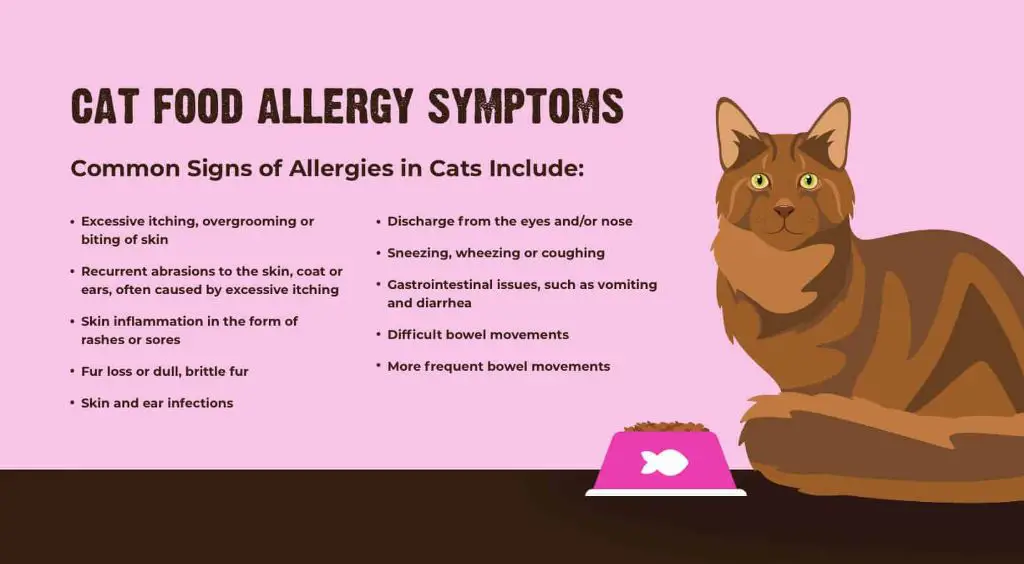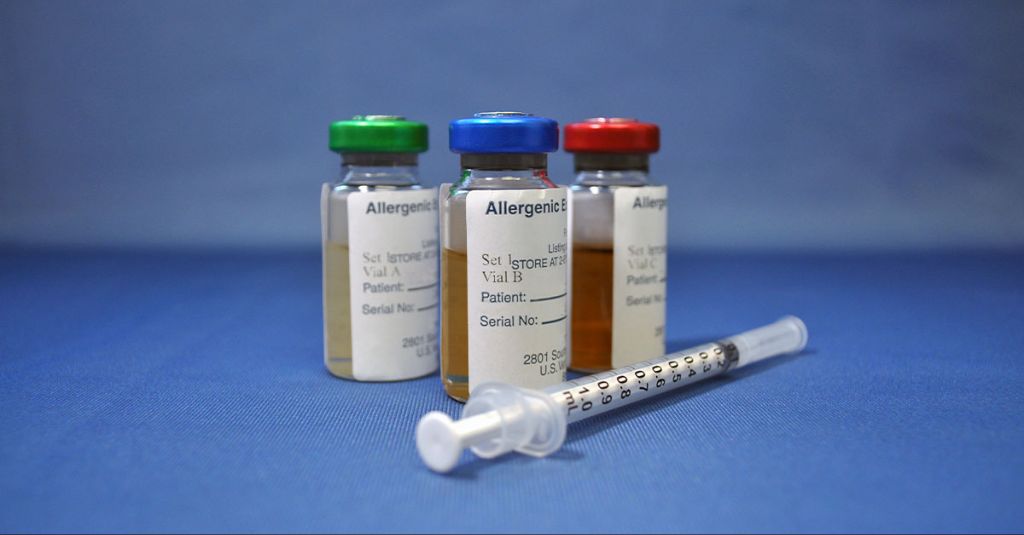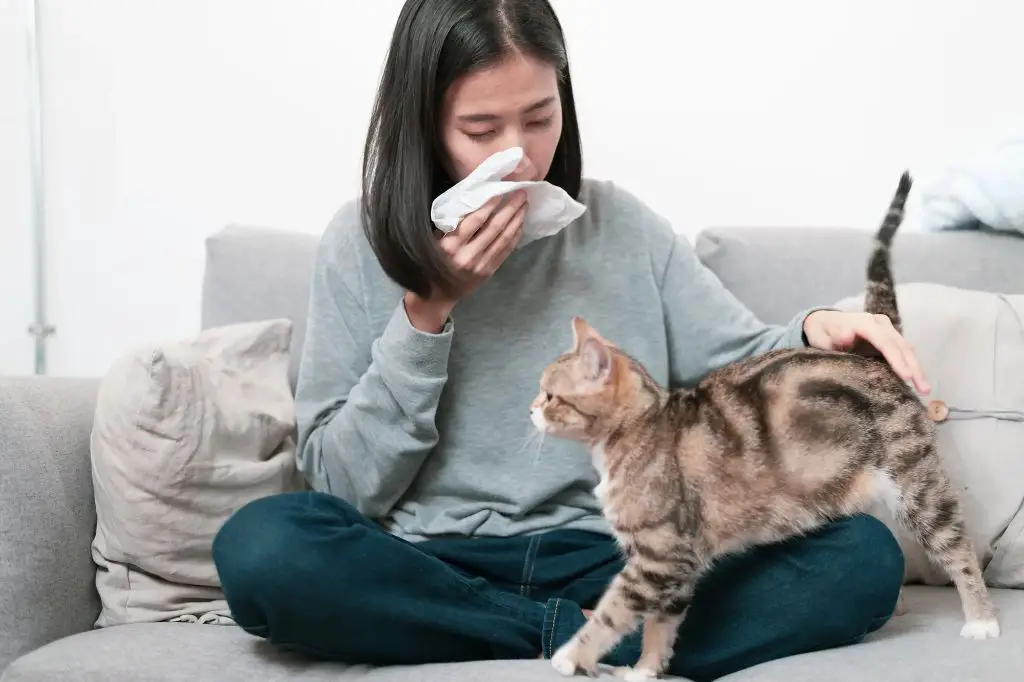What Are Cat Allergies?
Cat allergies are caused by an allergic reaction to specific proteins found in cat dander, saliva, and urine [1]. When someone with a cat allergy is exposed to these allergens, their immune system overreacts and releases antibodies like histamine, causing allergy symptoms.
Some common symptoms of cat allergies include:
- Sneezing
- Itchy, watery eyes
- Runny nose
- Nasal congestion
- Coughing
- Skin rash or hives
The severity of cat allergy symptoms can range from mild to severe. Mild symptoms may be manageable with over-the-counter medication. However, severe cat allergies can significantly impact quality of life and may require allergy shots or avoiding cat exposure altogether [2].

Allergy shots contain small doses of allergens to help build up tolerance to substances that cause allergic reactions. They require regular injections over the course of months or years to train the immune system to stop overreacting to allergens.
What Are Allergy Shots?
Allergy shots, also known as allergen immunotherapy, contain small amounts of the allergens that trigger symptoms for a particular person (https://www.mayoclinic.org/tests-procedures/allergy-shots/about/pac-20392876). The allergen extract is injected under the skin, with the doses slowly increased over time. This allows the person’s immune system to get used to the allergens and build up a tolerance.
The regular injections change how the immune system responds to the allergens, reducing inflammation and allergy symptoms over the long term. Allergy shots typically require injections once or twice per week for 3-6 months to ramp up to a maintenance dose. Then the person usually continues maintenance shots every 2-4 weeks for 3-5 years (https://my.clevelandclinic.org/health/treatments/25194-allergy-shots). This long-term commitment allows time for the immune system to be retrained to tolerate the allergens.
Do Cat Allergy Shots Work?

Cat allergy shots, also known as allergen immunotherapy, can be an effective treatment option for people with cat allergies. According to research from the National Institutes of Health, cat allergy shots can significantly reduce symptoms in many patients (https://www.nih.gov/news-events/nih-research-matters/experimental-cat-allergy-shots-provide-longer-lasting-relief).
Allergy shots work by gradually exposing the immune system to small amounts of cat allergens over time. This helps the body build up tolerance and reduce IgE antibody levels. Studies show allergy shots can be up to 80-90% effective for treating cat allergy symptoms when consistently administered over 3-5 years (https://newsinhealth.nih.gov/2023/01/experimental-cat-allergy-therapy-gives-more-effective-relief).
However, it may take several months of treatment before the full effects are seen. Most patients start to experience symptom relief within 6-12 months, as the immune system gradually builds tolerance (https://www.healio.com/news/allergy-asthma/20220826/singledose-immunotherapy-improves-outcomes-among-patients-with-cat-allergies). Patience and consistency with the allergy shot regimen is important.
How Are Cat Allergy Shots Given?
Cat allergy shots involve administering small but gradually increasing doses of cat allergens over time to desensitize the immune system [1]. The process begins with an extremely diluted extract, with the dose slowly increased on a set schedule under medical supervision.
The frequency of allergy shot administrations ranges from 1-2 times per week at the start of treatment, tapering down to once per month after the optimal maintenance dose is reached [2]. The entire course of cat allergy immunotherapy usually takes 3-5 years. The gradual uptitration allows the immune system to get accustomed to cat allergens over time, leading to reduced symptoms upon exposure.
What Are The Risks?

There are some potential risks and side effects to be aware of with allergy shots 1:
- Local reactions at the injection site like redness, swelling, and itching are common. These usually go away within a day.
- Systemic reactions like hives, asthma flare ups, or anaphylaxis are less common but can be severe. That’s why allergy shots must be administered in a medical setting.
- Given the risk of anaphylaxis, allergy shots should only be administered by an allergist. They can monitor for and respond to any severe reactions.
With proper precautions, risks can be minimized. But it’s important to discuss any concerns with your allergist before starting allergy shots.
Who Is A Good Candidate?
Cat allergy shots may be a good option for certain individuals with cat allergies, including:
Those with moderate to severe cat allergies. According to the NIH, allergy shots are often recommended for people who do not get enough symptom relief from medications alone or who experience side effects from medication use. Allergy shots can help reduce allergy symptoms and the need for medication in those with more persistent or severe reactions to cats.
Patients who want to keep/get a cat. For those with cat allergies who do not want to part with their feline companions, allergy shots can help them manage symptoms so they can continue living with cats. According to Family Allergy, research shows allergy shots can eliminate pet allergies in many patients who complete the full course of treatment.
Those not sufficiently helped by medications. Allergy shots may provide longer lasting relief than allergy medications alone, according to an NIH study. Allergy shots gradually desensitize the immune system to cat allergens over time. This can provide sustained symptom relief even after treatment is stopped.
Other Allergy Management Options
In addition to allergy shots, there are other ways to manage cat allergies without completely avoiding cats. These include:

Allergy Medications: Over-the-counter and prescription antihistamines like cetirizine (Zyrtec) or fexofenadine (Allegra) can help relieve allergy symptoms like sneezing, itchy eyes, and runny nose. Nasal steroid sprays like fluticasone (Flonase) can reduce inflammation in the nasal passages. Eye drops like olopatadine (Patanol) can provide relief for itchy, watery eyes. While these medications don’t treat the underlying allergy, they can provide symptom relief.
Nasal Sprays and Eye Drops: Nasal sprays containing steroids or antihistamines can reduce inflammation and congestion in the nasal passages caused by allergies. Similarly, allergy eye drops can provide relief from itchy, irritated, watery eyes. These provide targeted symptom relief when and where you need it most.
Air Filters and Minimizing Fabrics: High efficiency particulate air (HEPA) filters can remove allergens like cat dander from the air. Frequent cleaning and brushing of the cat along with minimizing fabrics like rugs, curtains and upholstered furniture that collect allergens can also help reduce allergen exposure.
Lifestyle Changes
There are several lifestyle adjustments you can make to help reduce exposure to cat allergens if you have cat allergies:
Frequent vacuuming can help reduce cat dander and allergens in your home. Focus on carpets, furniture, curtains, and any other fabric surfaces where dander can collect. Use a vacuum with a HEPA filter for best results. Washing fabrics like curtains, pillows, and blankets regularly can also help reduce allergens [1].
Keeping your cat out of bedrooms can help create an allergen-free sleep space. Use pet gates, closed doors, or other barriers to prevent your cat from entering bedrooms. Be diligent about washing bedding regularly as well [2].
Bathing your cat weekly with a pet-safe shampoo can reduce dander and allergens in their fur. Be sure to use lukewarm water and rinse thoroughly. Talk to your vet about appropriate shampoos and bathing frequency for your cat [3].
Other Immunotherapy Options
Sublingual immunotherapy (SLIT) is an alternative approach to allergy shots that is gaining popularity. With SLIT, a liquid extract containing the allergen is administered as drops or tablets that dissolve under the tongue.
According to the American Academy of Allergy, Asthma & Immunology, SLIT is considered effective for dust mite, grass, and ragweed allergies. Some studies have also demonstrated efficacy for cat allergies, though the data is less robust.
Potential benefits of SLIT include convenience and safety. SLIT allows the allergen extract to be administered at home, avoiding weekly visits to the allergist’s office. It also eliminates the risk of anaphylactic reactions that can rarely occur with injections.
While allergy shots can modify the immune system after 3 to 5 years of therapy, SLIT generally does not appear to have long-lasting, disease-modifying effects. Any benefits diminish once treatment is discontinued.
According to the Johns Hopkins Medicine, SLIT tablets for grass pollen allergies and SLIT drops for certain dust mite allergies are FDA-approved and commercially available in the United States. However, SLIT therapy for cat allergies has yet to gain FDA approval.
Researchers are also investigating potential allergy vaccines that could provide long-term tolerance. While still experimental, the technology holds promise for more permanent treatment of allergies in the future.
The Takeaway
Cat allergy shots can greatly reduce allergy symptoms over the long-term for many people who suffer from cat allergies. However, allergy shots require a significant commitment. Patients typically need to receive injections on a regular schedule for 3-5 years to achieve maximum results. While inconvenient, research shows allergy shots can lead to long-term reduction in allergy symptoms and improved quality of life. Studies have found the benefits of allergy shots can last for years after treatment is stopped.
Those struggling with cat allergies who want to consider immunotherapy should have an evaluation with an allergist. The allergist can discuss whether allergy shots are a good option based on the individual’s medical history and allergy test results. They can also go over what to expect during treatment. Other allergy management options, such as medications or lifestyle changes, can also be reviewed.

